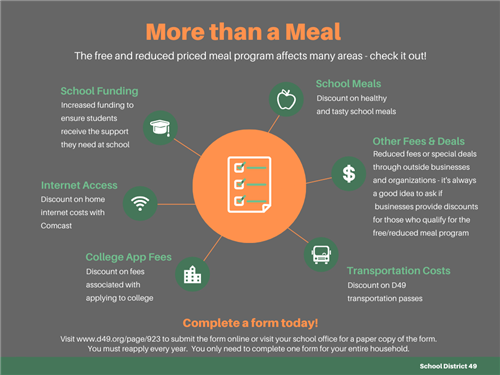Technology plays a pivotal role in enhancing learning experiences in today’s rapidly evolving educational landscape.
Schoology D49 refers to implementing the Schoology learning management system, specifically in District 49 schools, aiming to streamline education processes and enhance collaboration among educators, students, and parents.
This article explores the significance of Schoology in D49, its features, benefits, implementation strategies, success stories, challenges, and prospects.
Understanding Schoology:
Schoology is more than just a platform; it’s a comprehensive ecosystem that facilitates seamless collaboration, engagement, and learning outcomes.
One of its key features is its integration capabilities with existing educational tools and systems, making it a versatile solution for D49 schools.
How Schoology Benefits D49 Schools:

1. Enhanced Communication:
Schoology serves as a centralized platform for communication between teachers, students, and parents.
Educators can easily share important information, provide feedback, and foster collaboration among stakeholders through features like announcements, messaging, and discussion forums.
2. Streamlined Curriculum Management:
Schoology’s curriculum management tools enable educators to organize course materials, create learning resources, and align content with academic standards.
This streamlines curriculum development and ensures consistency across D49 schools, making it easier for educators to deliver high-quality instruction.
3. Personalized Learning Experiences:
Schoology supports personalized learning by offering adaptive learning pathways, differentiated instruction, and data-driven insights.
Educators can tailor instruction to meet each student’s individual needs and preferences, fostering engagement and improving learning outcomes.
4. Efficient Assessment And Grading:
With Schoology, educators can create, distribute, and grade assignments digitally, saving time and reducing paperwork.
The platform offers robust grading features, including customizable rubrics and gradebook management, allowing educators to provide timely feedback and track student progress effectively.
Read: SocialAR – Engage, Connect, and Innovate!
5. Integration With Existing Tools:
Schoology integrates with other educational tools and platforms commonly used in D49 schools, such as Google Workspace and Microsoft Office 365.
This integration ensures a cohesive user experience and maximizes the utility of existing resources.
6. Data-Driven Decision Making:
Schoology provides valuable insights into student performance, engagement, and progress. Educators can leverage analytics and reporting features to identify trends, assess student mastery, and make informed instructional decisions.
Implementing Schoology Effectively In D49:

1. Comprehensive Training And Support:
D49 schools should prioritize comprehensive training programs to equip educators with the knowledge and skills to leverage Schoology effectively.
Training sessions should cover basic functionalities, advanced features, and best practices for instructional design and assessment.
2. Customized Professional Development:
Recognizing that educators have varying levels of familiarity and comfort with technology, D49 schools should offer customized professional development opportunities tailored to individual needs.
This may include differentiated training sessions, peer mentoring programs, and ongoing coaching and support.
3. Strategic Integration With Existing Systems:
Seamless integration of Schoology with existing educational systems and workflows is essential for minimizing disruption and maximizing adoption rates.
D49 schools should collaborate with IT specialists and instructional technology experts to develop integration strategies that align with organizational goals and priorities.
4. Clear Communication And Expectations:
Effective communication is key to ensuring buy-in and engagement from all stakeholders. D49 schools should communicate clear expectations regarding the use of Schoology, including its purpose, benefits, and support resources available.
Regular updates, newsletters, and informational sessions can keep educators, students, and parents informed and engaged.
5. Administrative Leadership And Support:
Strong leadership from school administrators is crucial for driving the successful implementation of Schoology.
Administrators should demonstrate a commitment to technology integration, provide visible support and encouragement to educators, and allocate resources and personnel to support implementation efforts.
6. Data-Driven Decision Making:
D49 schools should utilize data analytics and feedback mechanisms within Schoology to monitor usage patterns, identify areas for improvement, and make informed decisions about instructional practices.
Regular analysis of usage data, student performance metrics, and educator feedback can inform ongoing professional development initiatives and support continuous improvement efforts.
Read: Celebrities With Panda Eyes – Detailed Guide – 2024!
Challenges And Solutions In Adopting Schoology:
1. Technical Issues:
- Challenge: Technical glitches, compatibility issues, and network connectivity problems can hinder the smooth adoption of Schoology.
- Solution: D49 schools should work closely with Schoology’s technical support team and IT specialists to troubleshoot issues promptly. Providing educators with ongoing training and technical assistance can also address technical challenges and ensure a seamless user experience.
2. Resistance To Change:
- Challenge: Educators and staff may resist adopting new technologies like Schoology due to unfamiliarity, fear of change, or skepticism about its effectiveness.
- Solution: D49 schools should prioritize change management strategies that address the concerns and fears of educators. This may include providing opportunities for hands-on training, showcasing success stories from other schools, and offering incentives for early adopters. Engaging educators in the decision-making process and soliciting their input can also increase buy-in and ownership of the adoption process.
3. Lack Of Training And Support:

- Challenge: Inadequate training and support for educators can hinder their ability to leverage Schoology’s features and functionalities effectively.
- Solution: D49 schools should invest in comprehensive training programs that cater to educators’ diverse needs and learning styles. Access to online tutorials, user guides, and peer mentoring programs can supplement traditional training sessions and offer ongoing support. Additionally, establishing a dedicated helpdesk or support hotline can ensure that educators can access assistance whenever needed.
4. Data Privacy And Security Concerns:
- Challenge: Educators, students, and parents may be concerned about the privacy and security of their data when using Schoology.
- Solution: D49 schools should prioritize data privacy and security measures by implementing robust security protocols, encryption standards, and access controls within Schoology. Communicating transparently with stakeholders about data privacy policies, compliance with regulations such as FERPA and COPPA, and the steps taken to safeguard sensitive information can help alleviate concerns and build trust in the platform.
5. Integration With Existing Systems:
- Challenge: Integrating Schoology with existing educational systems, tools, and workflows can be complex and time-consuming.
- Solution: D49 schools should develop a strategic integration plan with IT specialists and instructional technology experts. This plan should identify key integration points, establish data exchange protocols, and prioritize interoperability with commonly used tools and platforms. Regular communication and stakeholder collaboration ensure integration efforts align with organizational goals and priorities.
6. Sustaining Engagement And Adoption:
- Challenge: Maintaining educator and student engagement with Schoology over the long term can be challenging, especially as the initial excitement wanes.
- Solution: D49 schools should foster a culture of continuous learning and innovation by providing ongoing professional development opportunities, celebrating successes, and recognizing achievements related to Schoology usage. Encouraging collaboration among educators, sharing best practices, and highlighting the tangible benefits of Schoology in improving teaching and learning outcomes can sustain engagement and foster a sense of ownership among users.
Conclusion:
In conclusion, Schoology has revolutionized education in District 49, empowering educators, engaging students, and enriching learning experiences. Schoology continues to shape the future of education in D49 and beyond through its intuitive interface, robust features, and commitment to excellence.
Frequently Asked Questions (FAQs):
1. Is Schoology Suitable For All Grade Levels In D49?
Yes, Schoology caters to the diverse needs of students across all grade levels, from elementary to high school.
2. How Does Schoology Ensure Data Privacy And Security For D49 Schools?
Schoology adheres to stringent data privacy and security standards, ensuring the protection of sensitive information and compliance with regulations such as FERPA and COPPA.
3. Can Parents Access Schoology To Monitor Their Child’s Progress?
Yes, Schoology provides parent accounts that allow parents to monitor their child’s assignments, grades, and communication with teachers.
4. What Support Resources Are Available For Educators Using Schoology In D49?
D49 schools offer a range of support resources, including training workshops, online tutorials, and dedicated helpdesk support, to assist educators in using Schoology effectively.
5. How Does Schoology Promote Collaboration Among Teachers In D49 Schools?
Schoology’s collaboration tools, such as shared resources, discussion forums, and professional learning communities, facilitate collaboration among educators, enabling them to share best practices, collaborate on curriculum development, and engage in ongoing professional development.
Read:
